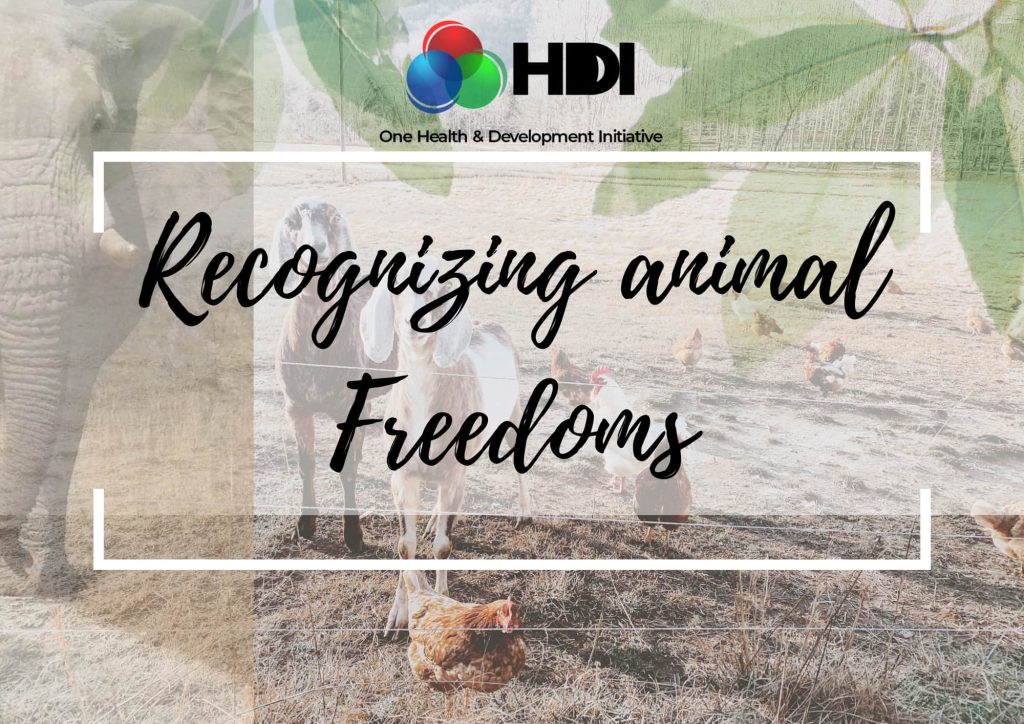
The concept of animal welfare is becoming increasingly important in Nigeria, as more people become aware of the need to treat animals with compassion and respect. To this end, organizations like One Health and Development Initiative have committed to recognizing the 5 animal freedoms. OHDI aims at promoting the well-being of animals in various settings by highlighting a few ways in which animal freedoms could be actualized. One of the key principles of animal welfare is the 5 Freedoms, which outline the basic needs that animals require to live healthy and fulfilling lives. The 5 Freedoms were first introduced by the UK Farm Animal Welfare Council in 1979, and have since been adopted by various animal welfare organizations around the world. They include:
- Freedom from hunger and thirst
- Freedom from discomfort
- Freedom from pain, injury or disease
- Freedom to express normal behavior
- Freedom from fear and distress
Freedom from hunger and thirst is the foremost need for animals. In Nigeria, this can be achieved by ensuring that animals have access to clean water and adequate food at all times. In the agricultural sector, this means providing livestock with proper nutrition and access to grazing areas. For example, a farmer can ensure that his cows have access to clean water and enough grass.
Freedom from discomfort refers to providing animals with comfortable living conditions. In Nigeria, this can be achieved by ensuring that animals are protected from harsh weather conditions, and provided with appropriate housing. Farmers can ensure that their livestock has adequate shelter to protect them from the harsh weather conditions in the agricultural sector.
Freedom from pain, injury, or disease is important for animal welfare. In Nigeria, this can be achieved by providing animals with proper medical care when needed. This includes routine vaccinations against common diseases, providing prompt intervention for injuries or illnesses, and implementing good hygiene practices to prevent the spread of disease. For example, in the dairy industry, farmers can ensure that their cows are regularly checked by a veterinarian [please check our homepage, and access our directory], and are given appropriate medication when needed.
Freedom to express normal behavior is essential for the well-being of animals. In Nigeria, this means ensuring that animals can engage in natural behaviors that are important to them. In the agricultural sector, this can be achieved by providing livestock with enough space to move around and allowing them to engage in natural activities such as grazing and socializing. Animals, whether farmed or for companionship, should be exposed to spacious environments that allow them to engage in natural behaviors, such as moving around freely, and involvement in unrestricted physical activity.
Freedom from fear and distress is important for animals to feel safe and secure. This can be achieved by ensuring that animals are not subjected to unnecessary stress or fear. In the agricultural sector, this means avoiding cruel or inhumane practices such as overcrowding, rough handling, or other forms of mistreatment. And these animals should be in environments free from loud noises or other stressful stimuli.
So, the Five Freedoms for Animals provide a useful framework for promoting animal welfare in Nigeria, and anywhere else in the world. By respecting these basic needs, we can ensure that animals are treated with compassion and respect and that they can live healthy and fulfilling lives.
By:
One Health and Development Initiative





